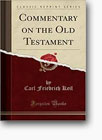Immortality of the Soul or Resurrection of the Dead?
by Oscar Cullmann
Conclusion
On his missionary journeys Paul surely met people who were unable to believe in his preaching of the resurrection for the very reason that they believed in the immortality of the soul. Thus in Athens there was no laughter until Paul spoke of the resurrection (Acts 17:32). Both the people of whom Paul says (in 1 Thessalonians 4:13) that ‘they have no hope’ and those of whom he writes (in 1 Corinthians 15:12) that they do not believe there is a resurrection from the dead are probably not Epicureans, as we are inclined to believe. Even those who believe in the immortality of the soul do not have the hope of which Paul speaks, the hope which expresses the belief of a divine miracle of new creation which will embrace everything, every part of the world created by God. Indeed for the Greeks who believed in the immortality of the soul it may have been harder to accept the Christian preaching of the resurrection than it was for others. About the year 150 Justin (in his Dialogue, 80) writes of people, ‘who say that there is no resurrection from the dead, but that immediately at death their souls would ascend to heaven’. Here the contrast is indeed clearly perceived.
The Emperor Marcus Aurelius, the philosopher who belongs with Socrates to the noblest figures of antiquity, also perceived the contrast. As is well known, he had the deepest contempt for Christianity.
One might think that the death of the Christian martyrs would have inspired respect in this great Stoic who regarded death with equanimity. But it was just the martyrs’ death with which he was least sympathetic. The alacrity with which the Christians met their death displeased him.( M. Aurelius, Med., XI, 3. To be sure, as time went on he more and more gave up the belief in the soul’s immortality.) The Stoic departed this life dispassionately; the Christian martyr on the other hand died with spirited passion for the cause of Christ, because he knew that by doing so he stood within a powerful redemptive process. The first Christian martyr, Stephen, shows us (Acts 7:55) how very differently death is bested by him who dies in Christ than by the ancient philosopher: he sees, it is said, ‘the heavens open and Christ standing at the right hand of God !’ He sees Christ, the Conqueror of Death. With this faith that the death he must undergo is already conquered by Him who has Himself endured it, Stephen lets himself be stoned.
The answer to the question, ‘Immortality of the soul or resurrection of the dead in the New Testament’, is unequivocal. The teaching of the great philosophers Socrates and Plato can in no way be brought into consonance with that of the New Testament. That their person, their life, and their bearing in death can none the less be honoured by Christians, the apologists of the second century have shown. I believe it can also be demonstrated from the New Testament. But this is a question with which we do not have to deal here.











Comments